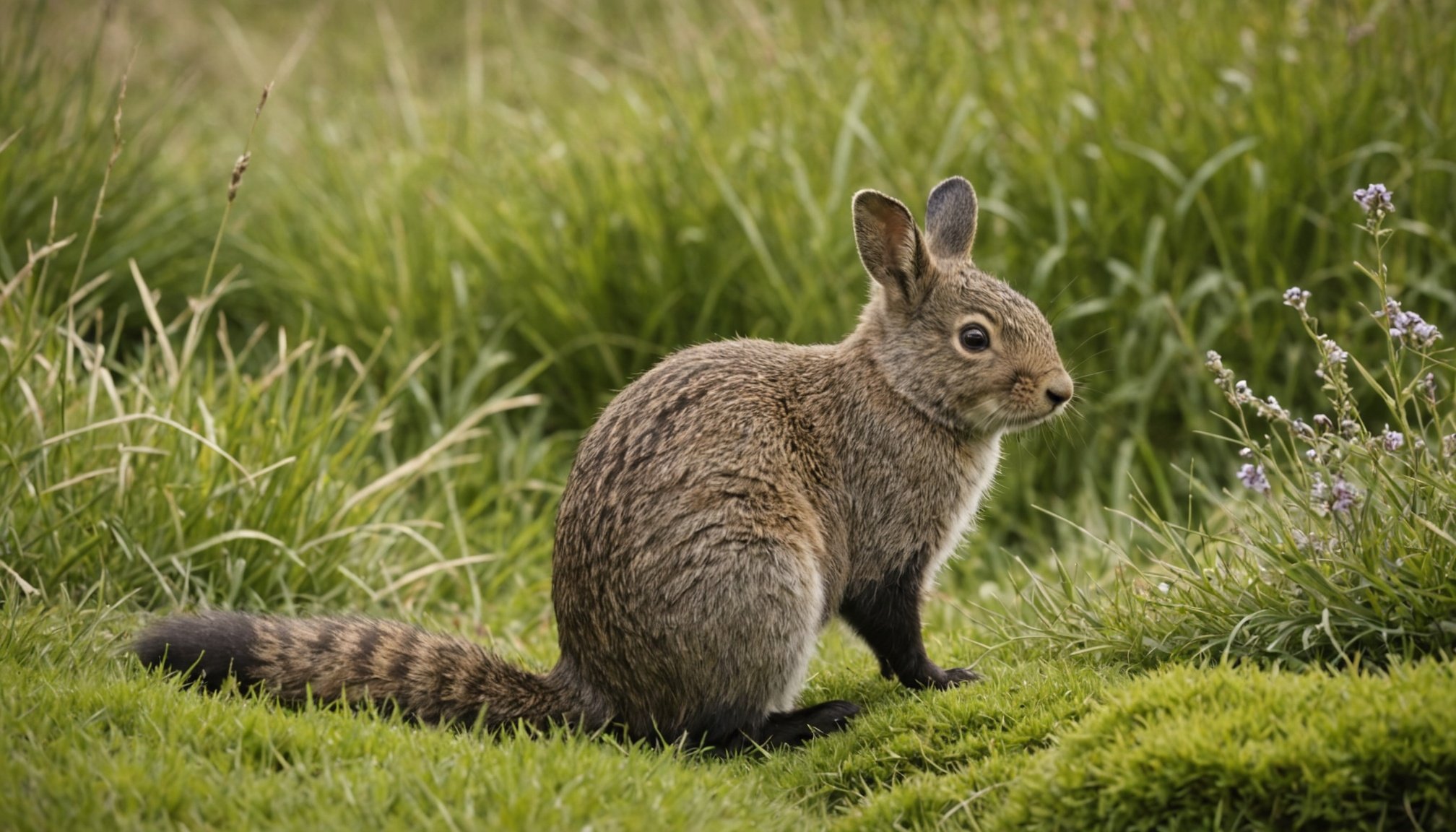Top Tips for UK Residents to Respect Wildlife While Enjoying the Great Outdoors
As the UK offers a diverse and vibrant natural world, from the rolling hills of the South Downs to the ancient forests of the New Forest, it’s essential for outdoor enthusiasts to know how to respect and protect the wildlife they encounter. Here are some top tips to help you enjoy the great outdoors while minimizing your impact on the environment and the animals that call it home.
Understanding the Countryside Code
Before you head out into the great outdoors, it’s crucial to familiarize yourself with the Countryside Code. This set of guidelines is designed to help you respect the natural world and the people who live and work in rural areas.
En parallèle : Discovering Local Wildlife: Engaging Educational Activities for UK Schools
Key Points of the Countryside Code
- Respect other people: Consider the needs of local people, farmers, and other visitors.
- Protect the environment: Leave nothing behind but bubbles and take nothing but memories.
- Enjoy the outdoors: Plan ahead and be prepared.
- Keep to public paths: To avoid damaging crops or disturbing wildlife.
- Control your dog: Keep your dog on a lead around livestock and wildlife.
- Dispose of waste properly: Take your litter home and dispose of it properly.
Here’s what the Countryside Code says about respecting wildlife:
“Keep to public paths and avoid disturbing wildlife, crops and livestock. If you are walking your dog in areas with livestock, keep it on a short lead and be prepared to let it go if it chases livestock.”[4]
A lire également : Top Strategies for UK Residents to Reduce Bird-Glass Collisions in Skyscrapers
Choosing Eco-Friendly Camping Spots
For those who love camping, selecting the right camping spot is vital to minimize your environmental impact.
Best Camping Practices
- Use Designated Camping Areas: Opt for campsites that are designated and managed to reduce the impact on the environment.
- Leave No Trace: Ensure you leave the campsite in the same condition as you found it. This includes disposing of waste properly and not littering.
- Minimize Fire Use: If you must have a fire, use a fire pit or ring, and fully extinguish it before leaving.
- Respect Local Wildlife: Avoid feeding or disturbing local animals.
Here’s an example of how to choose the best camping spots:
“When planning a camping trip in the New Forest, make sure to use one of the many designated campsites. These sites are managed to ensure minimal impact on the forest’s delicate ecosystem. Always follow the ‘Leave No Trace’ principle to help preserve this beautiful natural area.”[4]
Wildlife Watching: Tips and Best Practices
Wildlife watching is a great way to connect with nature, but it’s important to do so in a way that doesn’t disturb the animals.
How to Watch Wildlife Responsibly
- Keep a Safe Distance: Use binoculars or a camera with a good zoom to observe wildlife without disturbing them.
- Be Quiet and Patient: Loud noises can scare animals away. Be patient and quiet to increase your chances of observing wildlife.
- Avoid Feeding Wildlife: Feeding wildlife can disrupt their natural behavior and diet.
- Respect Nesting and Breeding Areas: Avoid areas where animals are nesting or breeding to prevent disturbance.
Here’s what a wildlife enthusiast might say:
“When I went wildlife watching in the South Downs, I made sure to keep a safe distance from the animals. Using binoculars allowed me to observe them without disturbing their natural behavior. It was amazing to see the birds and deer in their natural habitat without causing them any stress.”[4]
Planning Ahead for Outdoor Access
Planning ahead is crucial to ensure that your outdoor adventure is both enjoyable and respectful of the environment.
Check Local Regulations
- National Park Rules: Different national parks have specific rules and regulations. Make sure to check these before your visit.
- Weather Conditions: Check the weather forecast to avoid visiting during adverse conditions that could harm the environment or wildlife.
- Path Conditions: Check the condition of paths and trails to avoid causing erosion or damage.
Here’s an example of planning ahead:
“Before heading out to the Lake District National Park, I checked the park’s website for any specific regulations or advisories. I also checked the weather forecast to ensure that I wouldn’t be contributing to erosion or other environmental damage. This planning helped me have a great outdoor experience while respecting the natural world.”[4]
The Importance of Mental Health and Nature
Spending time in nature is not only good for the environment but also for your mental health.
How Nature Helps Mental Health
- Reduces Stress: Being in nature has been shown to reduce stress levels and improve mood.
- Improves Cognitive Function: Nature can improve cognitive function and reduce symptoms of depression.
- Increases Physical Activity: Outdoor activities like hiking and cycling can increase physical activity levels.
Here’s what a mental health professional might say:
“Nature has a profound impact on mental health. Spending time outdoors can reduce stress, improve mood, and even improve cognitive function. Encouraging people to spend more time in nature is a simple yet effective way to promote mental well-being.”[3]
Table: Comparing Eco-Friendly and Non-Eco-Friendly Camping Practices
| Practice | Eco-Friendly | Non-Eco-Friendly |
|---|---|---|
| Camping Spot | Use designated campsites | Camp in undesignated areas |
| Waste Disposal | Dispose of waste properly | Leave litter behind |
| Fire Use | Use fire pits or rings and fully extinguish | Build fires in undesignated areas |
| Wildlife Interaction | Observe from a distance, do not feed | Feed or disturb wildlife |
| Path Use | Keep to public paths | Wander off paths, causing erosion |
Local and National Initiatives to Help Wildlife
There are several local and national initiatives that you can support to help protect wildlife and the environment.
Join Conservation Efforts
- Volunteer with Local Groups: Many local conservation groups offer opportunities to volunteer and help with conservation efforts.
- Support National Parks: Visiting and supporting national parks helps fund conservation efforts.
- Participate in Events: Events like the Great Canadian Bioblitz (though not in the UK, it’s a great example) encourage people to observe and document local wildlife, contributing to conservation efforts[2].
Here’s what a conservationist might say:
“By joining local conservation groups and supporting national parks, you can play a significant role in protecting wildlife and the environment. Every small action, from volunteering to participating in events, helps make a big difference.”[2]
Practical Tips for Reducing Environmental Impact
Here are some practical tips to help you reduce your environmental impact when enjoying the outdoors:
Eco-Friendly Gear
- Reusable Water Bottles: Use reusable water bottles instead of single-use plastic ones.
- Biodegradable Soap: Use biodegradable soap for washing hands or dishes.
- Recyclable Materials: Choose gear made from recyclable materials.
Minimize Travel
- Local Destinations: Opt for local outdoor destinations to reduce travel emissions.
- Public Transport: Use public transport or carpool when possible.
Respect Local Rules
- Follow Local Regulations: Always follow local regulations and guidelines to protect the environment and wildlife.
Here’s an example of reducing environmental impact:
“When I went on a camping trip in the New Forest, I made sure to bring reusable water bottles and biodegradable soap. I also chose to camp at a local site to minimize travel emissions. These small actions helped reduce my environmental impact and ensured that I left the forest in the same condition as I found it.”[4]
Enjoying the great outdoors while respecting wildlife is a balance that can be easily achieved with the right knowledge and practices. By following the Countryside Code, choosing eco-friendly camping spots, watching wildlife responsibly, planning ahead, and supporting local and national conservation efforts, you can ensure that your outdoor adventures are both enjoyable and sustainable.
Remember, every small action counts, and by making these practices a part of your outdoor routine, you can help protect the natural world for future generations to enjoy.
“The great outdoors is a treasure that we must protect. By being mindful of our actions and following simple guidelines, we can ensure that we leave a positive impact on the environment and wildlife. Let’s all do our part to preserve this beautiful world we live in.”[4]











